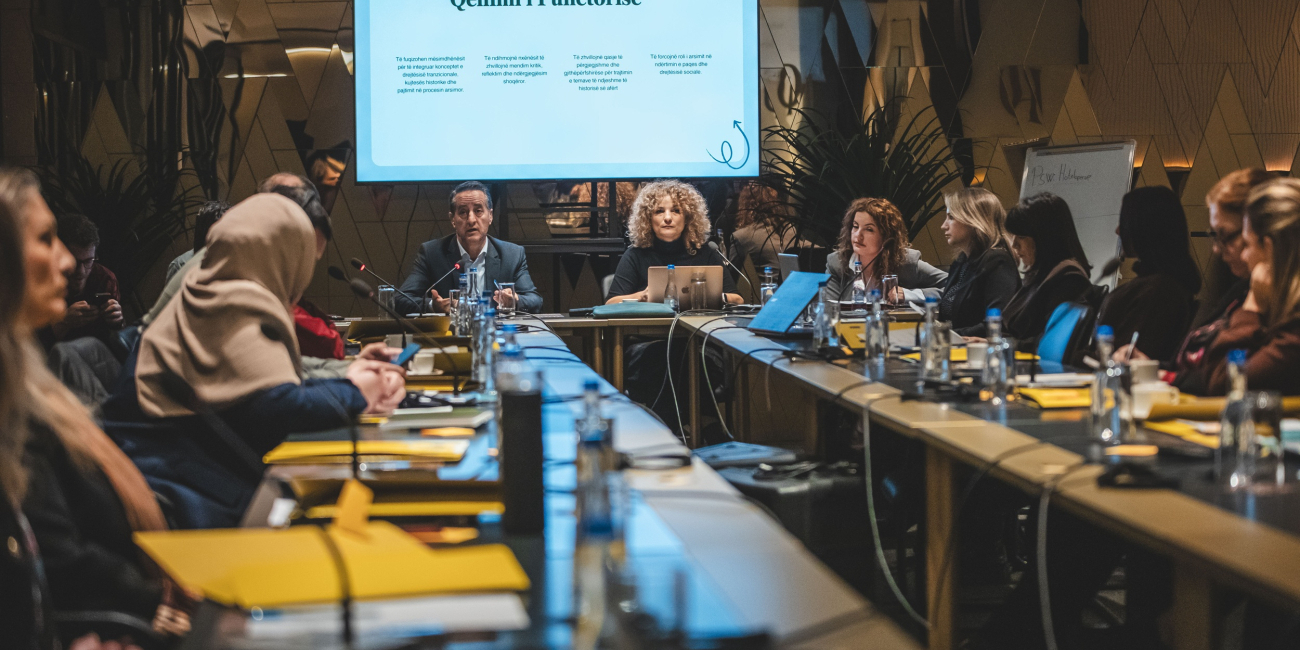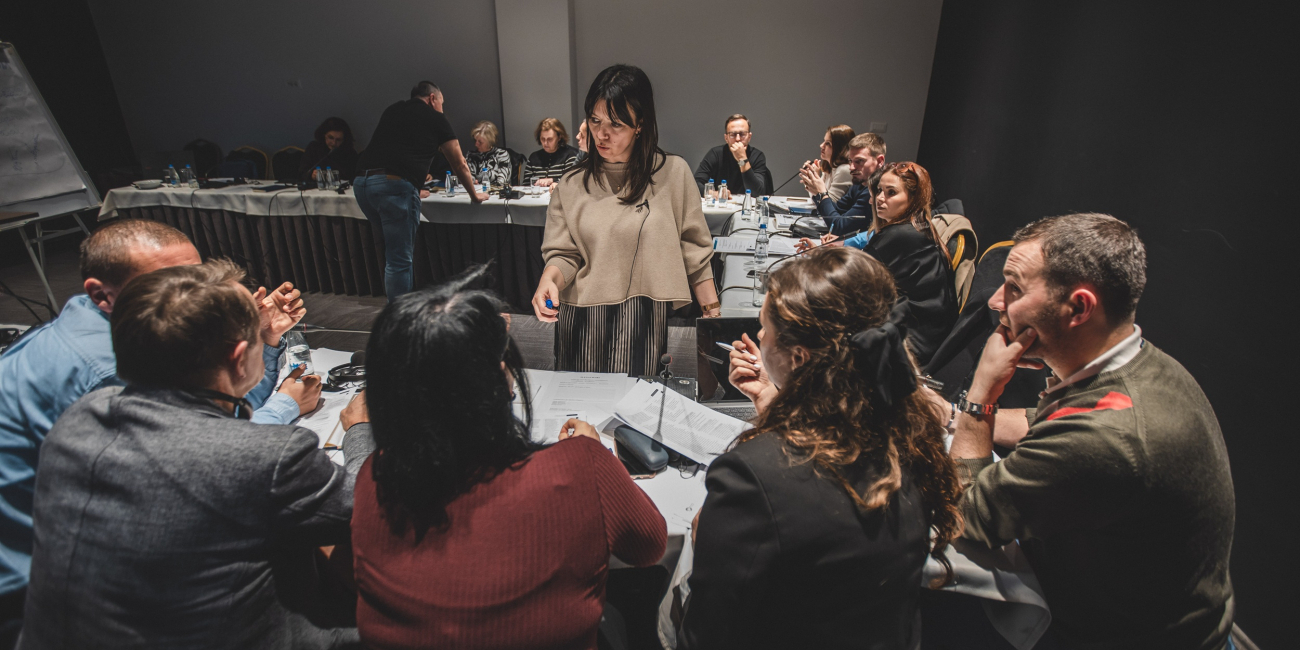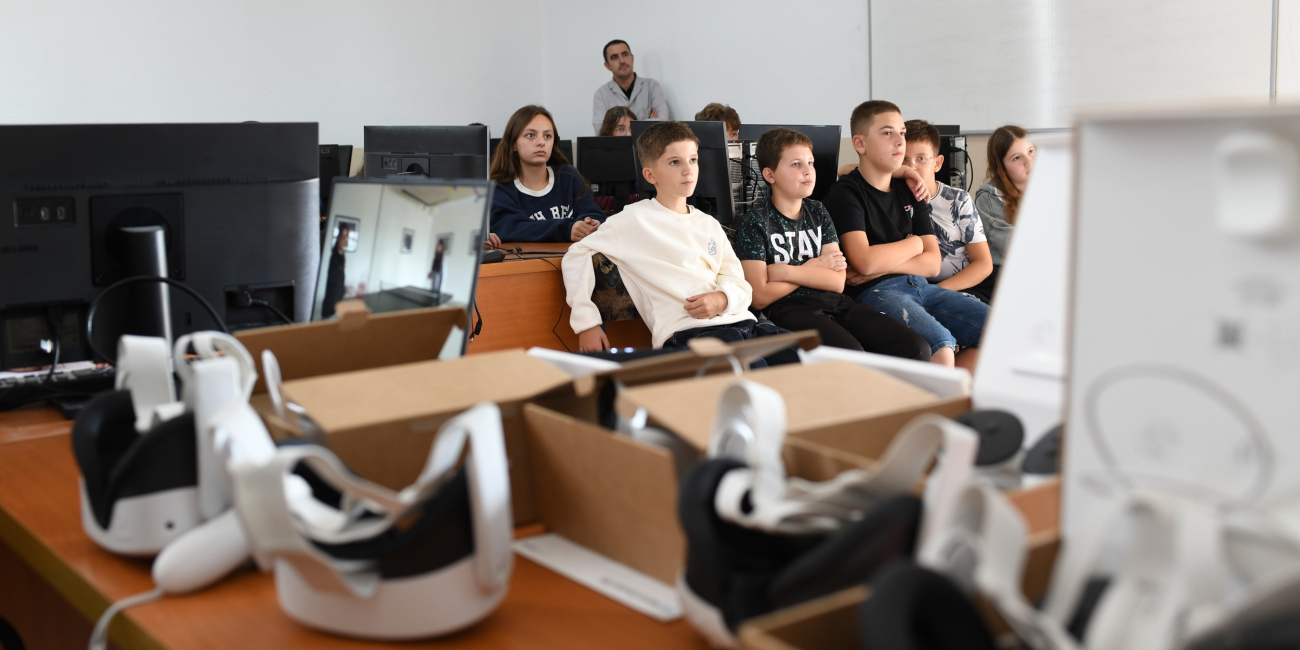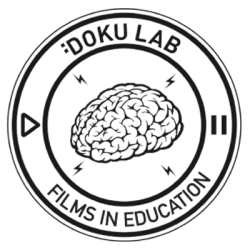DokuFest, in collaboration with the Humanitarian Law Center Kosovo, successfully conducted a series of teacher training workshops within the project…
Për qasje të plotë në Bibliotekën Digjitale ju duhet llogari aktive në DokuLab
VISUAL TEACHERS
Our DokuLab team in February continued regular sessions of Film Guide development to enrich the Teacher’s Digital Library. The last session brought together teachers of Civic Education, Sociology, Psychology, Albanian and English language to explore films that address Human Rights, Education, Women Empowerment and Sustainable Development.
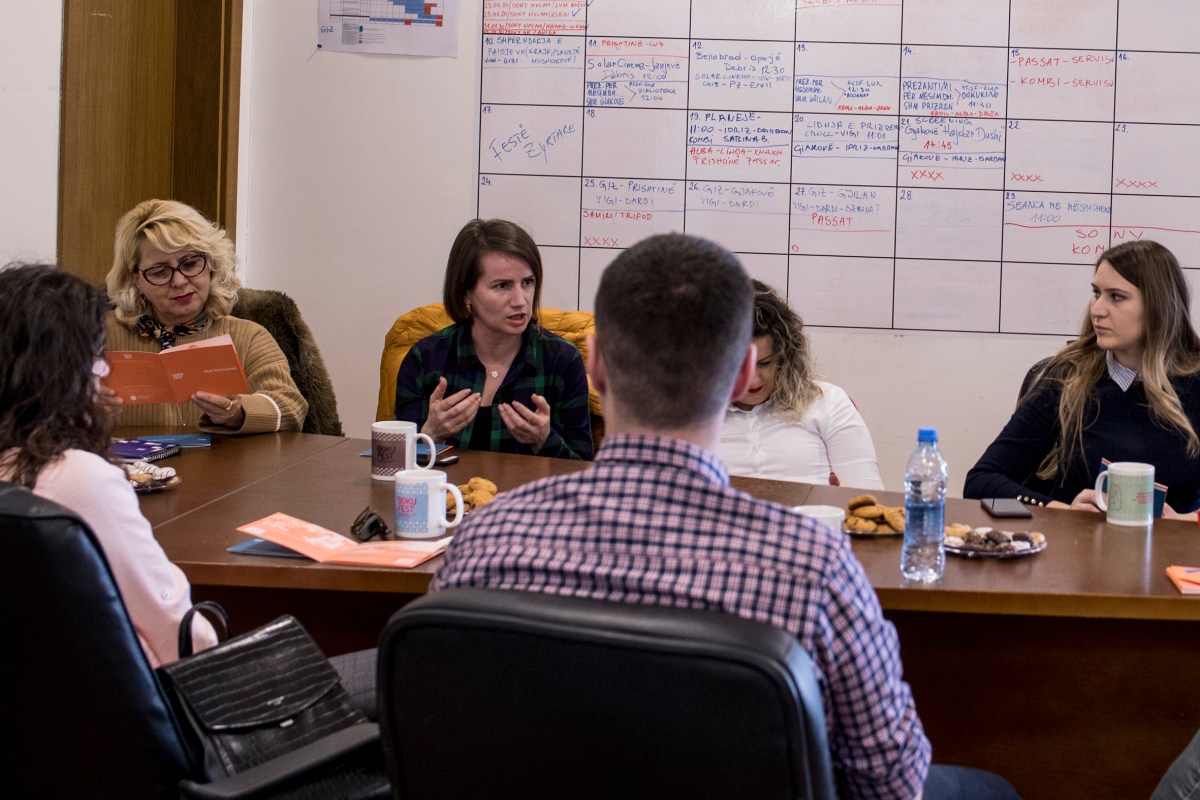 One of the immediate lessons that were identified where this film could be used was Socio-cultural Diversity among Individuals (Prejudices and Attitudes) in the subject of Psychology.
The second film, commissioned from the Danish WHY Foundation tells the story of Rafea, a Jordanian Bedouin mother who is given the opportunity to study at the Barefoot College in India, and become a solar engineer, capable of bringing power to the remotest places. She attends the college’s program, which brings together 27 women from all over the world. They’re all from poor backgrounds, they are mothers and grandmothers and mostly illiterate. For six months, they live on the campus and learn about electrical components and soldering. Solar Mamas shows how learning about electrical components and soldering without being able to read, write, or understand English is the easy part. Harder to negotiate is the pressure from Rafea’s patriarchal, unemployed Bedouin husband who demands that she returns home.
This Programme is supported through ‘Network Partners Program’ financed by Prince Claus Fund.
One of the immediate lessons that were identified where this film could be used was Socio-cultural Diversity among Individuals (Prejudices and Attitudes) in the subject of Psychology.
The second film, commissioned from the Danish WHY Foundation tells the story of Rafea, a Jordanian Bedouin mother who is given the opportunity to study at the Barefoot College in India, and become a solar engineer, capable of bringing power to the remotest places. She attends the college’s program, which brings together 27 women from all over the world. They’re all from poor backgrounds, they are mothers and grandmothers and mostly illiterate. For six months, they live on the campus and learn about electrical components and soldering. Solar Mamas shows how learning about electrical components and soldering without being able to read, write, or understand English is the easy part. Harder to negotiate is the pressure from Rafea’s patriarchal, unemployed Bedouin husband who demands that she returns home.
This Programme is supported through ‘Network Partners Program’ financed by Prince Claus Fund.

